Cardiac Tumor Treatment Cost in India
Unlock Exclusive Discount : Your Gateway to Premium Healthcare with Medsurge India Health Value Card.

Unlock Exclusive Discount : Your Gateway to Premium Healthcare with Medsurge India Health Value Card.


Cardiac tumors are very rare compared to other cardiovascular disorders and tumors from other organs, with only about 0.3% of patients undergoing cardiac surgery. The majority of cardiac tumors are benign, with cardiac myxomas being the most common in surgery, with a frequency of 70–80 % in cardiac tumors. Symptoms of cardiac tumors range from absent to nonspecific, and they frequently appear insidiously due to their diverse appearances. Arrhythmias, blood flow blockage, embolization, and other specific findings are all symptoms caused by cardiac tumors. Patients may experience dyspnea, dizziness, syncope, palpitations, and heart failure if the blood flow tract is impeded by a cardiac tumor. For cardiac tumor treatment in India, surgical procedures are advisable for patients to prevent life-threatening events from occurring.
A tumor is essentially an overgrowth on the surface of any tissue or organ. A cardiac tumor is defined as tissue expansion that arises on the surface of heart tissues. These protrusions are most commonly encountered in the heart chambers or heart valves. Cardiovascular tumors are the rarest and least well-known of the several types of tumors.
Cardiac tumors, like all other tumors, are divided into two categories. These tumors have the following names:
Tumors are classified into two categories based on where they originate. They are referred to as:
The majority of cardiac tumors are benign. However, small fragments of these can occasionally fall into the bloodstream, get carried away, and impede blood flow to the major organs. The medical term for this is embolism.
Many people with cardiac tumors show no symptoms. Symptoms are often non-specific and comparable to many other more prevalent cardiovascular disorders in those patients who do have them. The location, size, growth rate, and friability of the tumor all have a role in symptom manifestation (tendency to break off and travel in the bloodstream).
Here are some examples of clinical presentations:
The rarity of cardiac tumors, as well as their similarities to other cardiac diseases and disorders, make diagnosis difficult. People with heart murmurs, irregular heart rhythms, or perplexing heart failure symptoms are usually diagnosed with cardiac tumors only after a thorough examination of their family history, symptoms, and a battery of diagnostic testing. If unexpected heart malfunctions are observed in cancer patients, the cause may be traced to cardiac tumors.
If your doctor detects a heart tumor, he or she may order the following tests for you:
On average, Cardiac Tumor Treatment Cost in India on an average starts from USD 9000. The cost of Cardiac Tumor Treatment in India will depend on the type of hospital or the location you choose.
| Cities | Starting Price |
| Delhi | USD 9100 |
| Gurgaon | USD 9100 |
| Noida | USD 9000 |
| Mumbai | USD 9200 |
| Hyderabad | USD 9000 |
| Chennai | USD 9000 |
| Kolkata | USD 9000 |
| Bangalore | USD 9500 |
Note: Do remember that the pricing and the treatment for Cardiac Tumor Treatment cost in India will vary depending on the patient’s choice and other various factors.
The following here are some variables that can affect Cardiac Tumor Treatment Cost in India:
Furthermore, even the standard and grade of medical care and amenities are comparable to those of the most prestigious healthcare facilities in the world, even when the expense of lodging, meals, and transportation is taken out. Also, under the direction of the most skilled physicians, Medsurge India provides patients with the lowest Cardiac Tumor Treatment Cost in India.
The causes of a cardiac tumor might be various, however, it is usually discovered to be an external component or explanation that causes this type of overgrowth. The following are some of the known reasons:
Because cardiac tumors impair heart blood flow, surgical excision of the mass is the preferred treatment. Medicines, on the other hand, may be used to slow the tumor's progression. Chemotherapeutic treatment is rare, but not unusual.
Following your decision to proceed with the surgery, you should do the following steps, which may or may not correspond with the physician's instructions.
You should consult your doctor about any medications you are already taking and if you should continue taking them. If you have health coverage or insurance coverage, notify the hospital's executives and business department two weeks before the final day for proper action. Pre-operative tests and other medications may be recommended by your doctor.
A regular bowel movement will be monitored the day before surgery. You will not be given any food prior to operation. Before the operation, the hospital staff may shave the area where the incision will be made, as well as remove any jewelry, makeup, or other accessories. It is preferable to have someone with you at this time.
A patient's operation procedure can take three to five hours in total. The treatment can even be conducted by robotic arms in some facilities, which are less intrusive and need less time in the hospital.
Depending on the severity of the operation, the patient may be detained in an ICU for a day or two after the procedure for observation. He or she will be hooked up to a heart, blood pressure, body temperature, and inhalation monitor throughout this time. Patients will be transported to the general ward for continued healing once they can execute motor skills independently.
The recovery time for open-heart surgery is usually between 5 and 6 weeks. This period may be decreased to 2 to 3 weeks with robotically assisted surgery.
Benign cardiac tumors that go untreated can be fatal. Benign cardiac tumors that go untreated can also be life-threatening. Radiation, chemotherapy, and complication management are commonly used to treat malignant heart tumors. These tumors are predicted to have bad outcomes.
Know More - Top Cardiologists in India
A: After a heart cancer diagnosis, the typical life expectancy is roughly six months without surgery and more than a year when surgery is available, with some accounts of patients living for many years after complete excision of the tumor.
A: Malignant primary cardiac tumors have a poor prognosis, especially in young patients: without surgical resection, the survival rate at 9 to 12 months is only 10%.
A: Adults are more likely to develop atrial myxoma, while children are more likely to develop rhabdomyosarcoma (3, 4).
A: The initial imaging modality is usually echocardiography, particularly the transesophageal approach. It can reveal the tumor's location, size, and hemodynamic repercussions. Cardiac MRI can reveal more about the morphology, location, and size of the mass.
A: Blood flow restriction, rhythm problems, and valve damage can all be caused by masses or tumors in the heart. The treatment of choice is surgical removal, which can be performed using either an open heart surgery approach or a minimally invasive procedure.
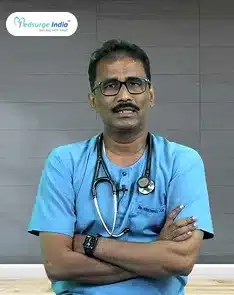
Interventional Cardiologist
Clinical Director
17+ Years
Care Hospital, Bhubaneswar
View Doctor
Interventional Cardiologist
Clinical Director
25+ years
Care Hospital, Bhubaneswar
View Doctor
Interventional Cardiologist
Clinical Director and Head of Department
36+ years
Care Hospital, Bhubaneswar
View Doctor
Interventional Cardiologist
HOD & Senior Consultant
17+ years
Meitra Hospital, Calicut, Kerala
View Doctor
Interventional Cardiologist
Senior Consultant
25+ years
Care Hospitals HITEC City
View Doctor
Interventional Cardiologist
Senior Consultant
10+ years
Care Hospitals HITEC City
View Doctor
Interventional Cardiologist
Director & Senior Consultant
22+ years
Care Hospitals HITEC City
View Doctor
Interventional Cardiologist
Senior Consultant
25+ years
Care Hospitals HITEC City
View Doctor
Interventional Cardiologist
Senior Consultant
28+ years
Baby Memorial Hospital
View Doctor
Interventional Cardiologist
Senior Consultant
14+ years
Baby Memorial Hospital
View Doctor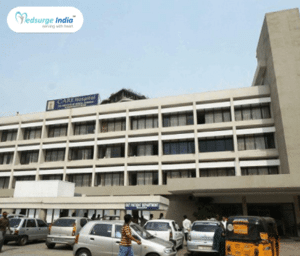
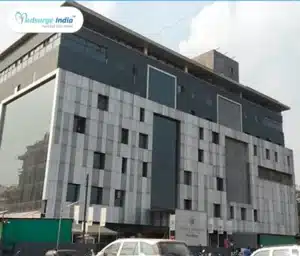
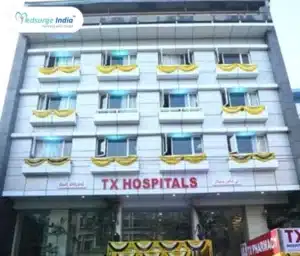
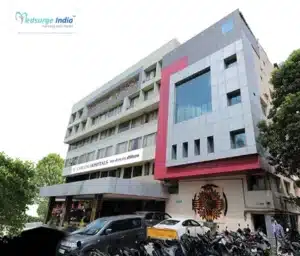



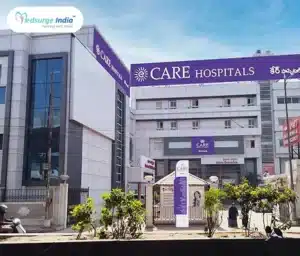
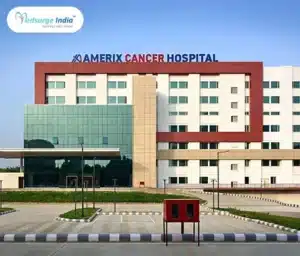
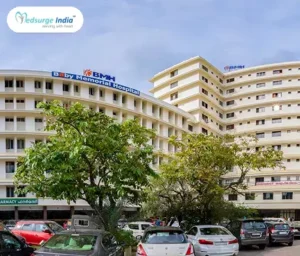
By using our site, you agree to our Terms and Conditions, Privacy Policy and Refund Policy. Medsurge India provides reliable healthcare information and treatment options to support informed decision-making. Our content is designed to support and complement the guidance of your treating doctor, helping you feel informed and confident throughout your healthcare journey. We also Accept International Payments.

Copyright © 2025 NSM ONLINE SOLUTIONS PRIVATE LIMITED. All rights reserved.